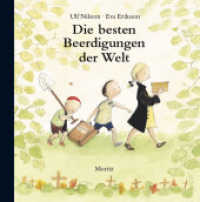Full Description
The 6-volume set constitutes the workshop proceedings of the 25th International Conference on Computational Science, ICCS 2025, which took place in Singapore, Singapore, during July 7-9, 2025.
The 137 full papers and 32 short papers presented in these proceedings were carefully reviewed and selected from 322 submissions.
-

- 電子書籍
- 4歳の うたとおはなし えほん百科シリ…
-

- 電子書籍
- いい気分だ






